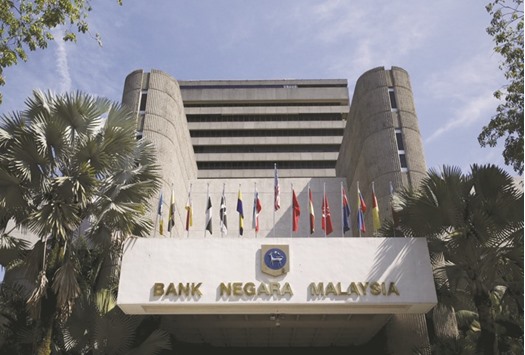Malaysia kept its benchmark interest rate unchanged in the face of a weakening currency, signalling policymakers are focused on protecting the ringgit rather than spurring economic growth.
Bank Negara Malaysia held the overnight policy rate at 3%, it said in a statement in Kuala Lumpur yesterday, as predicted by all 19 economists in a Bloomberg survey.
After a surprise rate cut in July that fuelled expectations of more easing, the central bank is shifting its attention to the ringgit following its slump since the November 8 US elections. The central bank is already clamping down on the offshore trading of its currency to help slow the ringgit’s decline.
“It is more worried about supporting the weak currency than boosting the sluggish economy,” said Krystal Tan, an economist at Capital Economics in Singapore, referring to the central bank. “We expect rates to be left on hold for the whole of 2017.”
The Malaysian currency dropped for 11 straight days through yesterday, and was trading at the lowest level since October 2015. It weakened 0.5% to 4.4425 per dollar as of 4:39pm in Kuala Lumpur.
“Bank Negara Malaysia will continue to provide liquidity to ensure the orderly functioning of the domestic foreign-exchange market,” it said in its statement. Uncertainties in the global economic and policy environment, as well as geopolitical developments are creating significant volatility in most emerging-market currencies including the ringgit, it said.
The economy remains on track to expand as projected this year and next, the central bank said. Growth is forecast at 4% to 4.5% in 2016, and 4% to 5% in 2017.
Inflation will probably average at the lower end of the 2% to 2.5% forecast range for this year and is “expected to remain relatively stable in 2017,” Bank Negara said. “If things stabilise, given the Fed tightening cycle, they might actually hike at an opportune time,” said Weiwen Ng, an economist at Australia & New Zealand Banking Group in Singapore, who forecast the central bank may start tightening policy in the fourth quarter of 2017. “Hiking rates might actually help you to fend off pressure on the currency.”

A general view of the Bank Negara Malaysia in Kuala Lumpur. The Malaysian central bank held the overnight policy rate at 3%, it said in a statement yesterday.
